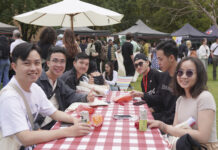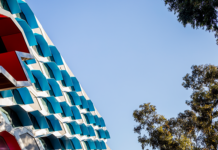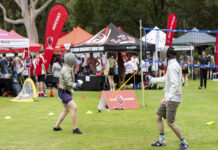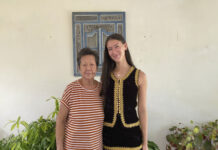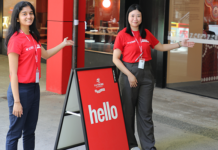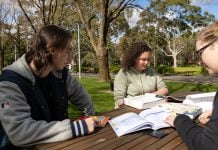The following text mentions sensitive topics related to violence experienced by the LGBTIQA+SB community. While the intention is to raise awareness and promote a safer environment, please be aware that these subjects may be distressing for some readers. Reader discretion is advised, and support is available.
Pride Week at La Trobe is back for 2023, with celebrations happening across all La Trobe campuses from 21st – 25th August. See what’s happening on your campus for Pride and find out how you can engage with the LGBTIQA+SB Community at La Trobe.
Learn what the SB (Sistergirl and Brotherboy) in LGBTIQA+SB stands for.
A Brief History of Pride
Pride began after 1969, following the June Stonewall Uprising in New York City. The Stonewall Uprising was a series of events between police and LGBTIQA+ protestors, after police raids and brutality against the community at the Stonewall Inn. This started a global movement and led to an annual pride month tradition in June.
Beyond fantastic colour, celebrations, and festivals, Pride also serves as a reminder of the progress made, the challenges yet to come, and the importance of celebrating diversity.
Visible Against Violence
This year’s theme at La Trobe, ‘Visible Against Violence’ calls out the high rates of discrimination and gender-based violence experienced by the LGBTQIA+SB community.
‘A number of Australian studies have found that LGBTQ people report high levels of verbal and physical abuse, harassment…’ including in public spaces, workplaces, and universities (NSSS, 2022).
Taking Action: Combating Violence and Fostering Change:
We can all take action to help create the change needed to stop violence from happening. Learn about the spectrum of gender identities, the differences between sexuality, sex, and gender and broaden your thinking around these topics.
Challenge representations that perpetuate gender stereotypes. Seek to promote diverse role models and commit to learning more about gender identities.
Display posters (Trans hub, Minus 18), badges, and lanyards to show a safe and welcoming space for LBGTIQA+SB people.
Learn how to be a better Ally for LQBTIQA+SB people by attending ally training.
Share your pronouns – in your email signature, when you introduce yourself verbally, in your Zoom name. This helps to normalise not assuming people’s pronouns, and signals understanding to trans and gender-diverse people.
Use gender-neutral language as default, until you know the term/s someone uses. For example, use:
- Folks, everyone (rather than guys or ladies and gentlemen)
- The person in the blue top (rather than the lady in the blue top)
- Parents, children, siblings (rather than mum/dad, daughter/son, sister/brother)
- Partner (rather than wife/husband/boyfriend/girlfriend)
For more information, please reach out to the Respectful Communities team, respect@latrobe.edu.au.
Support at La Trobe
Safer Community – Safer Community is a free, confidential support service for La Trobe students to report concerning, threatening, inappropriate, or uncomfortable behaviour they may experience or witness at the University.
Health, Wellbeing, and Inclusion – free and confidential health and wellbeing support.
External Support
- Switchboard: anonymous and free LGBTIQA+SB support and referral.
- QLife: LGBTIQA+ specific phone and web-based peer support and referral service, on 1800 184 527 or at their website.
- Lifeline: 24-hour a day phone support on 13 1114.
